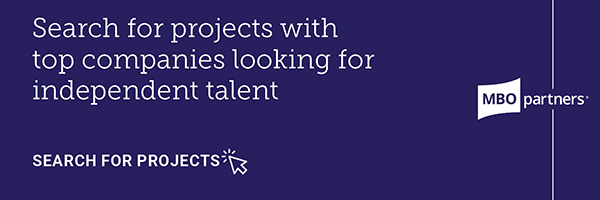5 Tips to Write Like a Marketer and Build Your Business

- One of the challenges in business writing is that we are trying to get people to change their minds and change their behavior—decide to engage our services, choose to download something, ask for more information, or express interest in hearing more from us.
- If you want your writing to help sell what you’re selling, you need to create an emotional connection with your audience, build trust, and start establishing a relationship before a potential client ever reaches out to you personally.
- Establishing credibility is one of the most important functions of good business writing, especially when writing website content, proposals, or for social media.
What you write can change how people understand, view, and act on a certain topic. Writing conveys passion, enthusiasm, interest, intrigue, and critical information that can help people make better decisions. Writing is a tangible expression of thought, analysis, and influence. So, why is there so much bad writing in business?
One of the challenges in business writing is that we are trying to get people to change their minds and change their behavior—decide to engage our services, choose to download something, ask for more information, or express interest in hearing more from us. But too much business writing is flat, unexciting, emotionless, and ineffective.
If you want your writing to help sell what you’re selling, you need to create an emotional connection with your audience, build trust, and start establishing a relationship before a potential client ever reaches out to you personally. Here are five tips to enhance your business writing.
1. Think Like Your Audience
Who are the people that will be reading your writing and what do they care about? What problem, stressful situation, or long-delayed decision can your business help them resolve? Before you write a single word, spend some time thinking about what is going through the mind of your reader. What perspective are they coming from when they read your writing? The answer to that question should be evident in your content.
2. Put Credibility First to Build Trust
Establishing credibility is one of the most important functions of good business writing, especially when writing website content, proposals, or for social media. Everything you write should have the goal of building trust. Think about all the empty promises made by advertising. Are your readers skeptical of too many sales pitches, doubtful about your budget promises, or prepared to go out and find a cheaper quote?
Consider the reasons why your audience might be reluctant to trust you and address their concerns openly and honestly. Show them the value you offer and explain why your services are worth the price. Don’t overpromise and use glitzy sales language—speak honestly and plainly with your own authentic voice.
3. Explain Your Passion
Too many business websites sound exactly the same. Instead of succumbing another boring cliché, tell the unique story of your business. Explain why you started doing what you do. Convey the enthusiasm that you bring to your work each day and give your audience something to remember you by. By showing them why you care about what you sell, they will be more likely to care about you.
4. Focus on the Clients You Want to Attract
Your business isn’t the right fit for every customer, so don’t try and be all things to all people. Some customers won’t want to buy what you’re selling and that’s perfectly fine. Your business writing should convey an attitude and point of view that helps prospective clients pre-qualify themselves by saying, “This company isn’t right for me, so I’m not going to waste my time by reaching out,” or, “I love this company and want to hear more from them!” Remember, it’s okay if your writing doesn’t speak to all prospective clients so long as it motivates your best customers to love you even more.
5. Be Authentic
Business writing isn’t rocket science. Perhaps the best way to get better at it is to write in a more authentic human voice. Empathize with your audience, get them to trust you, and convey the passion and real human energy behind your work. Once you’re able to do that, you’ll find that your website content, proposals, and other business writing will attract prospective clients who are better suited to your business and more excited to work with you.
Categories
Subscribe to the Insights blog to get weekly insights on the next way of working
Join our marketplace to search for consulting projects with top companies
Learn more about MBO
Learn how to start, run and grow your business with expert insights from MBO Partners
Learn how to find, manage and retain top-tier independent talent for your independent workforce.
MBO Partners publishes influential reports, cited by government and other major media outlets.
Research and tools designed to uncover insights and develop groundbreaking solutions.



